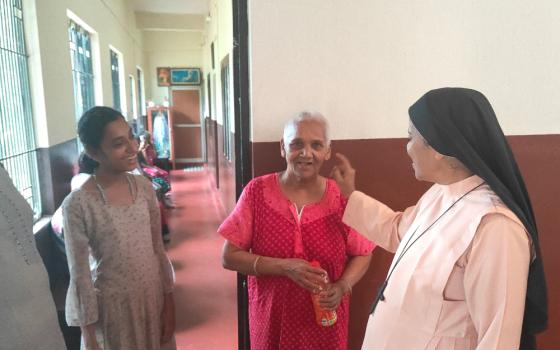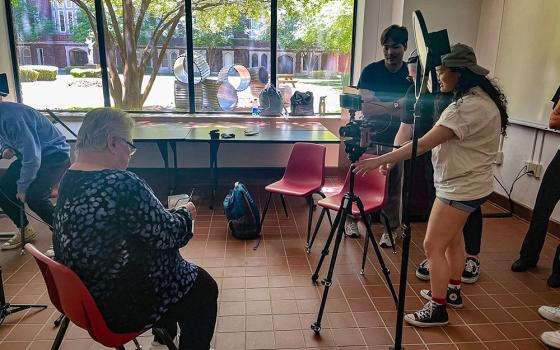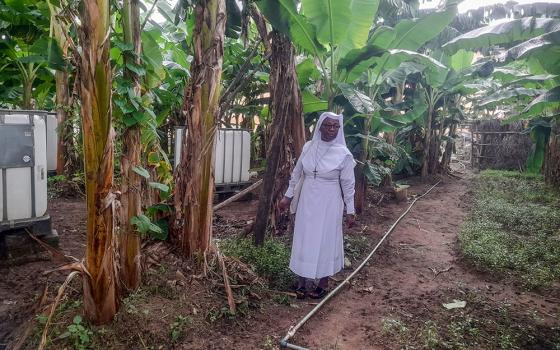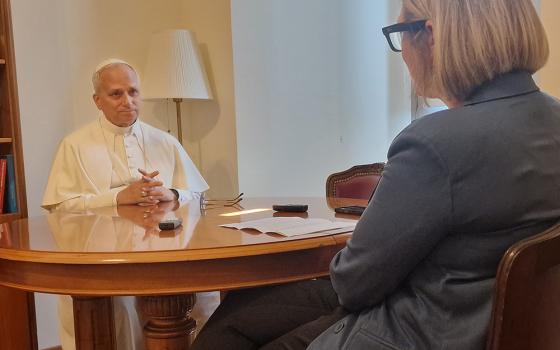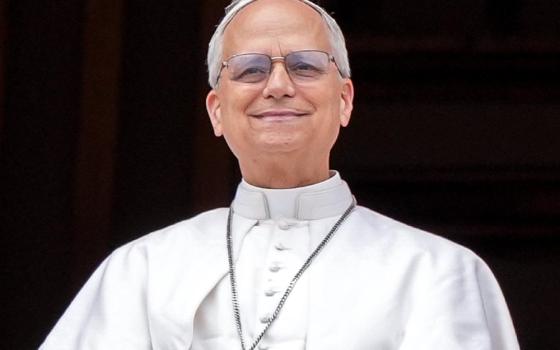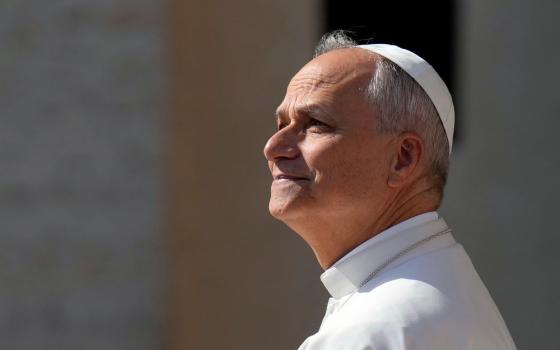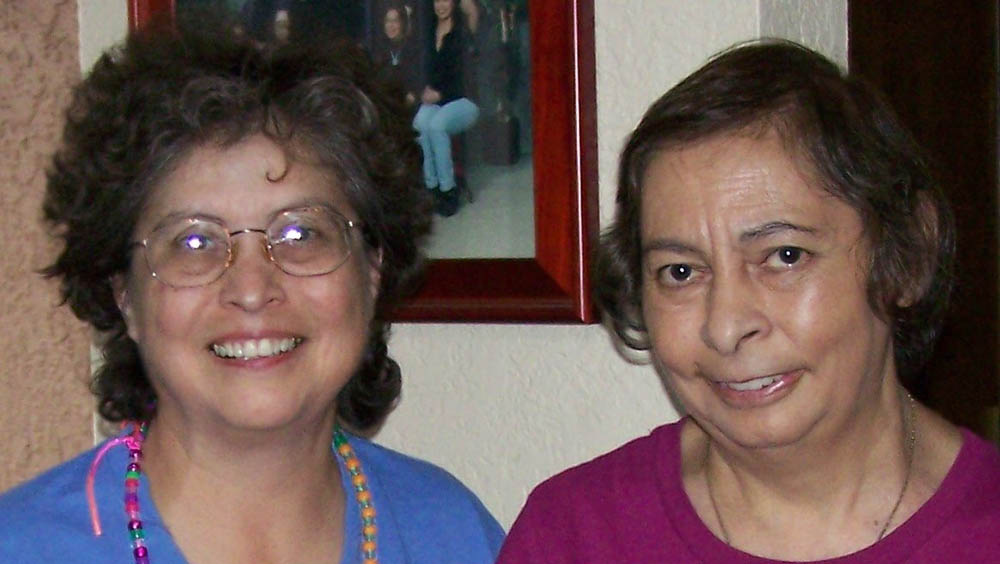
Presentation Sr. Maria Lopez, left, and her sister Lucy at Christmas 2008, nine months after Maria donated a kidney to Lucy (Courtesy of Maria Lopez)
Editor's note: National Donor Sabbath is observed annually two weekends before Thanksgiving, held Friday through Sunday to include the days of worship for major religions in the United States. Faith leaders, donor families, transplant recipients and transplantation professionals participate in programs that educate about the life-saving gift of organ donation, encouraging people to register their decision to be organ, eye and tissue donors.
Becoming a kidney donor evolved in a most unusual way. It began when I read a classified ad in the Catholic New York newspaper from a sister working in a parish in the New York Archdiocese. A kidney donor was needed for a woman in her parish. I read the ad many times and thought of that woman reaching out with the hope of receiving life. I decided to inquire.
Incredibly, a few days later I received a call from my sister Patricia to say our sister Lucy was going into kidney failure and would need to either go on dialysis or receive a kidney transplant. We both knew that because of her Parkinson's disease, the best — and possibly only choice for Lucy — would be a transplant.
I was tested for compatibility, and the result was 100% compatibility! Needless to say, Lucy and my entire family and friends were delighted. My Presentation Sisters' congregation, as well as everyone in my workplace at Hudson Valley Hospice, were wonderfully supportive.
The process was complicated by the fact that I lived in Kingston, New York, and Lucy lived in Albuquerque, New Mexico. After almost a year and a half of juggling work schedules, travel, tests and preparations, on Holy Thursday of 2008 I was gifted with the opportunity to give my sister Lucy a kidney.
For me, it was not a heroic act. Simply stated, I had two and she needed one. From that day forward, Lucy referred to me as her "kidney twin." Her quiet, profound gratitude humbled me.
In a kidney donation, it takes longer for the donor to recover completely than for the recipient. Lucy thrived almost immediately. It took me about a year to feel like new. When Lucy died in January 2020 as a result of complications from her Parkinson's, I felt great comfort and enormous gratitude for having been able to give her an amazing quality of life by simply sharing a gift with her.
My sister Patricia is also an organ recipient. Unfortunately, there was no compatible family member so she waited for five years on the national organ recipient waiting list to receive a liver. In July 2009, Patricia was notified that a liver was available for her. The family immediately put into action the plan that had been prepared long before.
Advertisement
She received a liver transplant from a donor she would never meet. The donor died of a gunshot wound, and the family shared that person's life by signing for an organ donation. That family's selfless act saved Patricia's life. Patricia has spent these years doing good for others in profound gratitude to the donor and the family's loving act.
Most people on a transplant waiting list wait for years, wondering if they will live to receive the needed organ. Many die still waiting. A living donor receives the gift of celebrating the life given to another. Donating an organ or tissue after one's death is equally amazing. One deceased donor might be able to give life to five or six recipients.
In the United States, federal law prohibits the sale of organs, and this is strictly enforced. Unfortunately, in many places around the world, the sale of organs is an unconscionable money-making business. Many of the poorest people in our world are exploited this way. They receive a pittance for an organ that will sell for enormous profit.
In the U.S., the first step on the path to organ donation is usually simply signing up to be an organ donor when you renew your driver's license. You can also access more information by contacting the organization Donate Life.
There certainly are innumerable needs in our world, and we as women religious work tirelessly to do what we can to make our world a better, more just place. Being an organ donor is not one of those things most sisters have on their "must do" list. But the selfless offering of ourselves in order to give life to others is exactly what we are about as women religious. Jesus did that very thing for each of us.
Perhaps some who are reading this article will consider donating life either as a living donor or as an after-death donor. We cherish the belief that Jesus gave his life that we may have life. What an amazing way to follow the example of Jesus — by being an organ donor!

